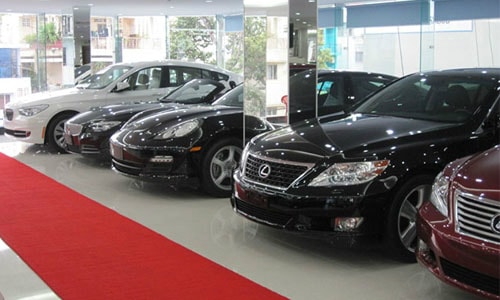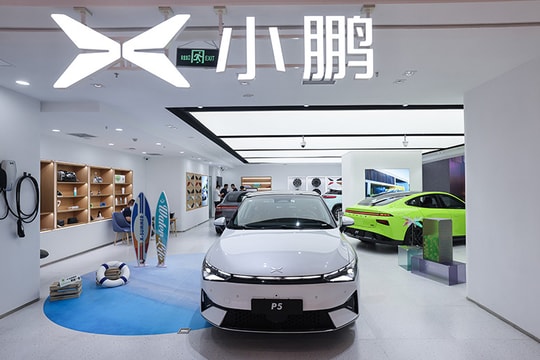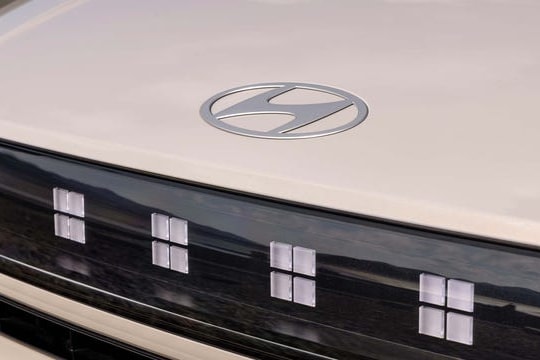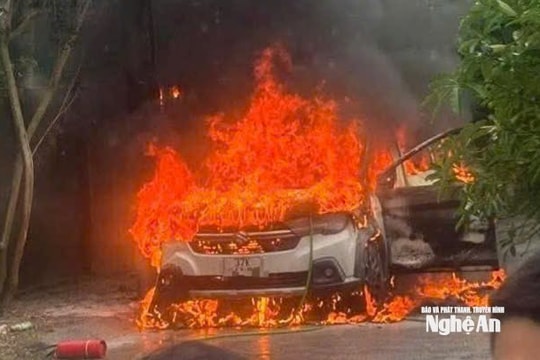Imported cars increase in price by billions of dong
The change in tax structure and new exchange rate policy has caused many imported cars to increase in price from tens of millions to billions of dong.
Since the end of last year, Mr. Thinh (Bac Tu Liem, Hanoi) has wanted to buy a Mercedes GLE 400 4Matic. But when he learned that at the beginning of this year, some import taxes on completely built-up cars to Vietnam would be significantly reduced, he decided to order a car at the beginning of this week. However, contrary to expectations, the car model he chose was adjusted by the company to increase the selling price by more than 200 million VND compared to before, and the listed price was more than 3.5 billion VND. "I thought the price would decrease, but it actually increased a lot. I am recalculating because the amount of money spent is quite large," he said.
According to a survey conducted by VnExpress at several imported car showrooms, among many imported models, the two brands Mercedes-Benz and BMW have seen most businesses increase their selling prices. The remaining companies are also starting to plan for adjustments.
A representative of a showroom on Nguyen Xien Street (Thanh Xuan) said the reason for the price increase comes from Decree 108 of the Government (as proposed by the Ministry of Finance) which took effect on January 1, 2016 on how to calculate special consumption tax on imported cars. According to him, in addition to changing the pricing structure, the new policy forces import businesses to pay an additional 10% in advertising costs, with profits calculated before special consumption tax.
"Because of the cumulative nature of this policy, after implementing this new policy, the total tax that businesses have to pay for each vehicle will increase by 13%. And of course, there is no other way but to include this amount in the cost price," he said.
However, this person said that the price of cars did not increase at this time, but in fact, it had been adjusted about a month ago. He said that before Decree 108 took effect, from November 30, 2015, the General Department of Customs issued Decision 3905, which mentioned the list of exported goods with price risks and the reference price in which the price increase was applied to each type of car. Specifically, the price applied to calculate tax for imported cars has increased by several thousand USD compared to before.
 |
| Imported luxury cars are having their prices adjusted higher than before. |
He cited the example of the Range Rover Evoque 2.0, which previously had a taxable price of only about 21,500 USD, but now has a minimum price of 25,000 USD. "With just this small change, the car price has increased by nearly 20% compared to before, without taking into account advertising costs or profit costs," he said.
At this company, among many brands, BMW models have been adjusted to increase by 49-650 million VND. Mercedes-Benz alone has a low price of 20 million VND and the highest price is nearly 1.8 billion VND (AMG G65 model increased from 14.6 billion VND to 16.4 billion VND). "By March this year, Range Rover and Porsche will introduce new models to the market and the company will also increase the selling price," he said.
Speaking to VnExpress, Mr. Dang Nhu Quynh - General Director of 99999999 Vietnam Joint Stock Company said that in addition to changing the pricing structure, with the central exchange rate management policy, changing daily, instead of being fixed for a long time, it makes it difficult for businesses to finalize a specific exchange rate with partners. "In the end, all costs incurred will still be included in the selling price by the business. Consumers will have to bear all of it," he said.
To avoid risks for both the company and the customer, he said that after ordering a car, the company will inform the customer of the CIF price to the port, and the car on the market must be taxed according to the new regulations. Customers who buy cars must accept the risk of price increases because the company cannot handle it all. As for customers who ordered cars before December last year, according to him, the company still has to deliver and suffer losses because the contract was closed before the policy changed.
Although importers are always in a "floating water, floating duck" situation, all increased costs are included in the selling price, but some businesses are also concerned that the increase is too high for each car model, more or less affecting the consumer psychology of customers.
According to the director of a showroom on Nguyen Van Cu Street (Gia Lam), most customers at this time wanted to wait for car prices to decrease because according to the roadmap of the free trade agreement that Vietnam signed with a partner, import tax on completely built-up cars from ASEAN countries will decrease from the beginning of this year. "However, luxury car lines such as Audi, Lexus, Range Rover, Mercedes-Benz, BMW are mostly imported from Japan, the US, Europe... - places where new FTAs are in the process of being completed - so there is no opportunity to enjoy preferential import tax," he affirmed.
He said that with the new tax on imported cars, almost all businesses have had to "turn around" and dare not import large quantities. "However, when businesses stop importing, there will be a shortage of goods and the selling price will have the opportunity to increase," he said.
According to VnExpress
| RELATED NEWS |
|---|









